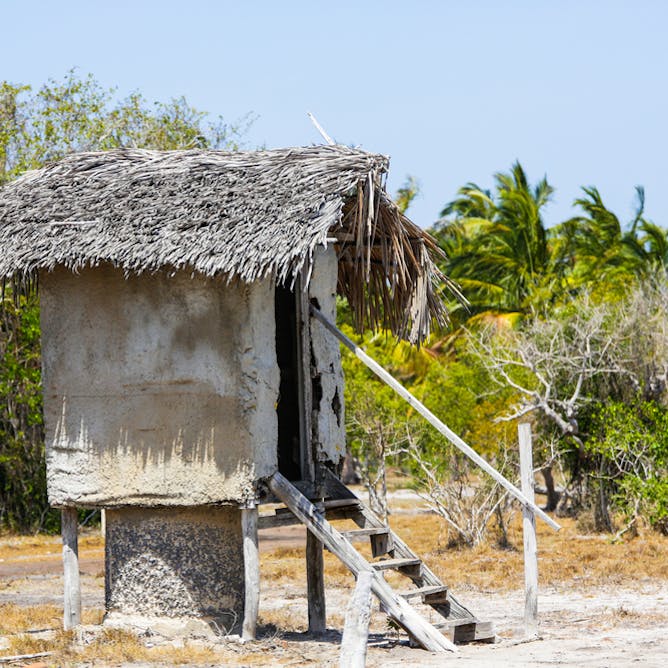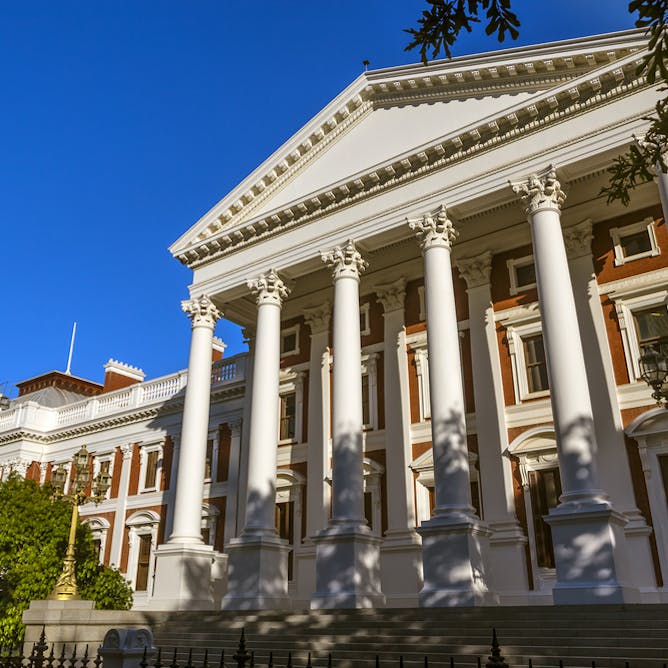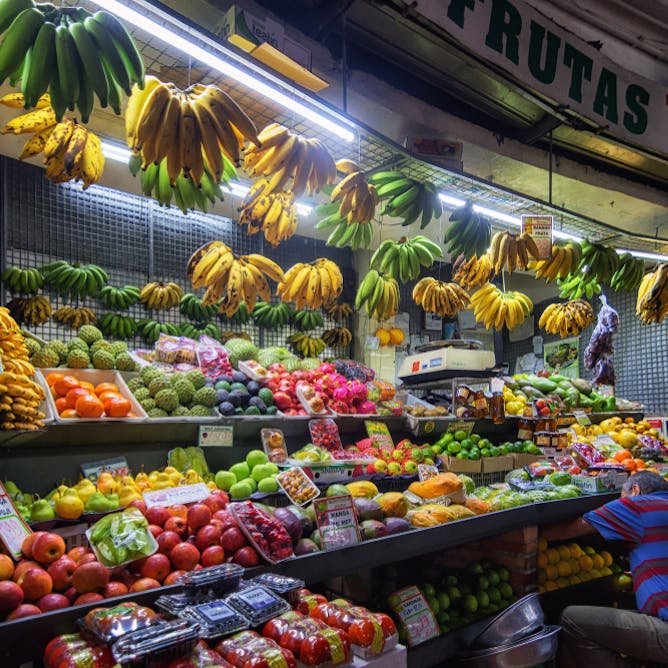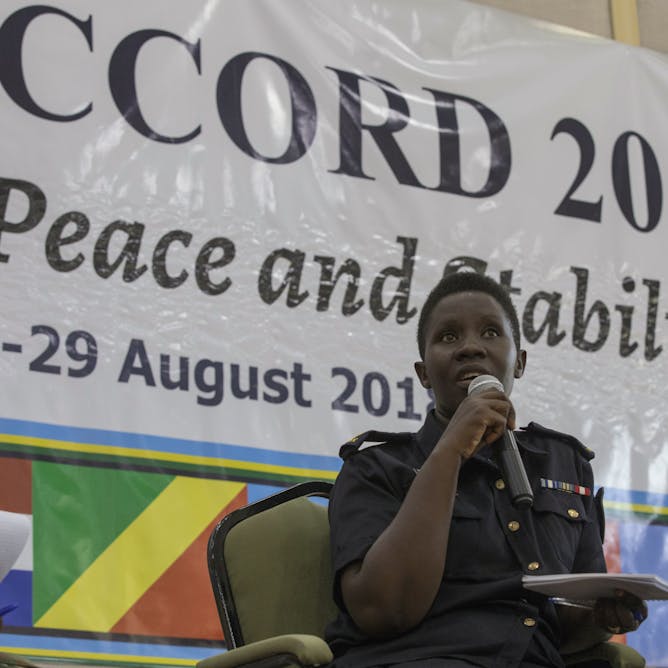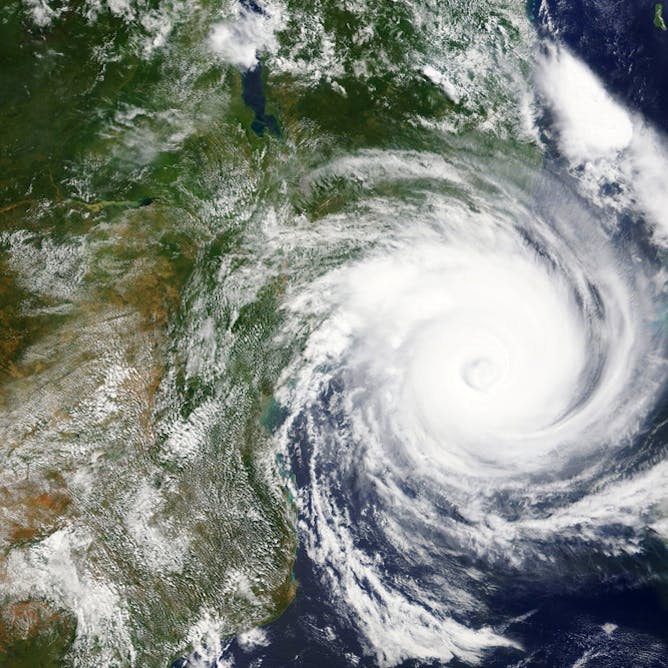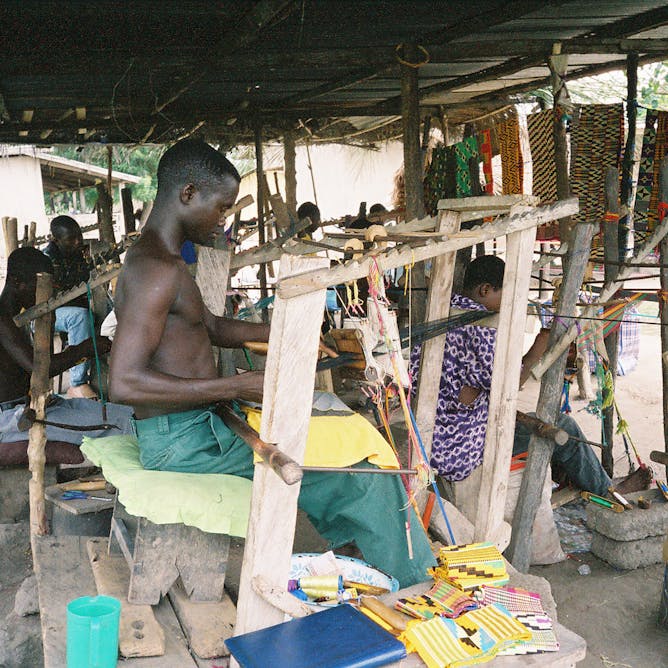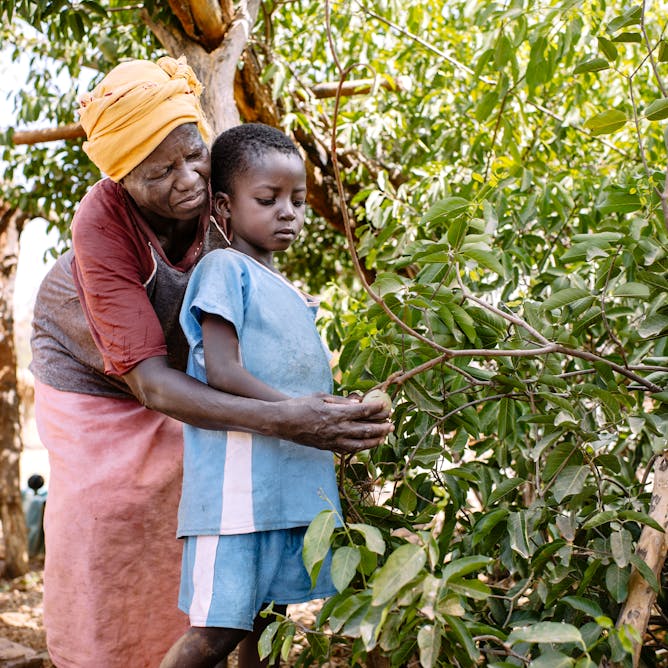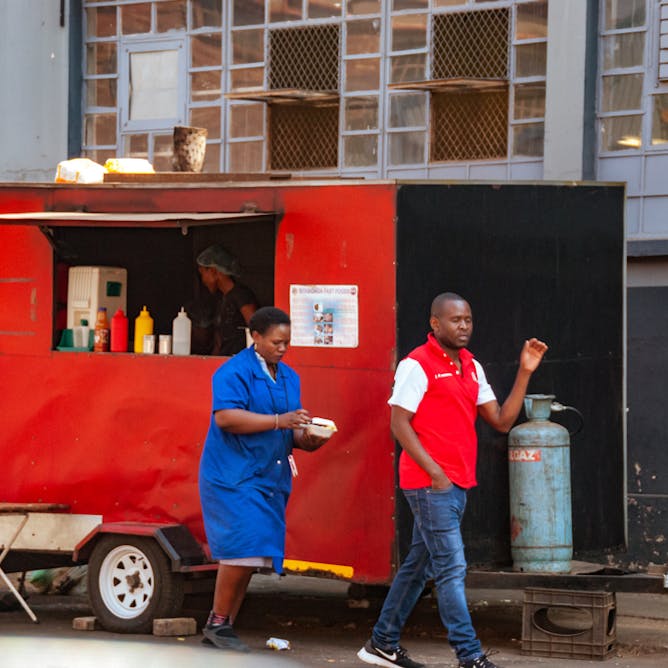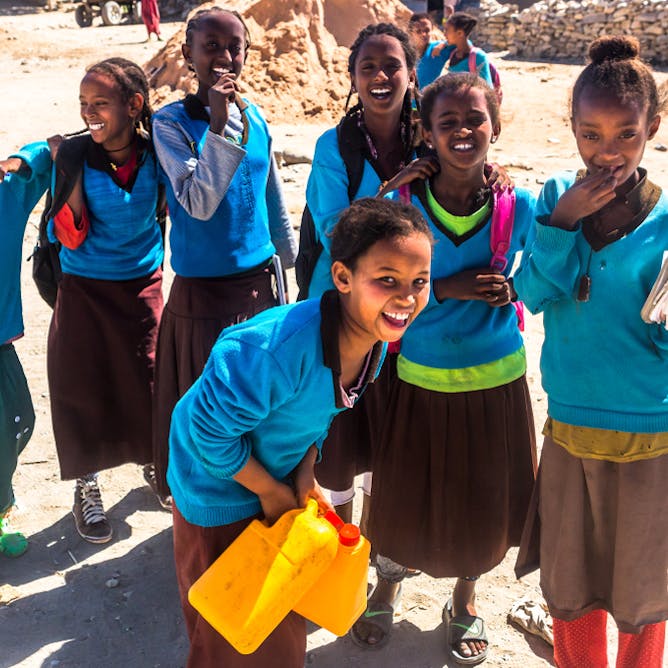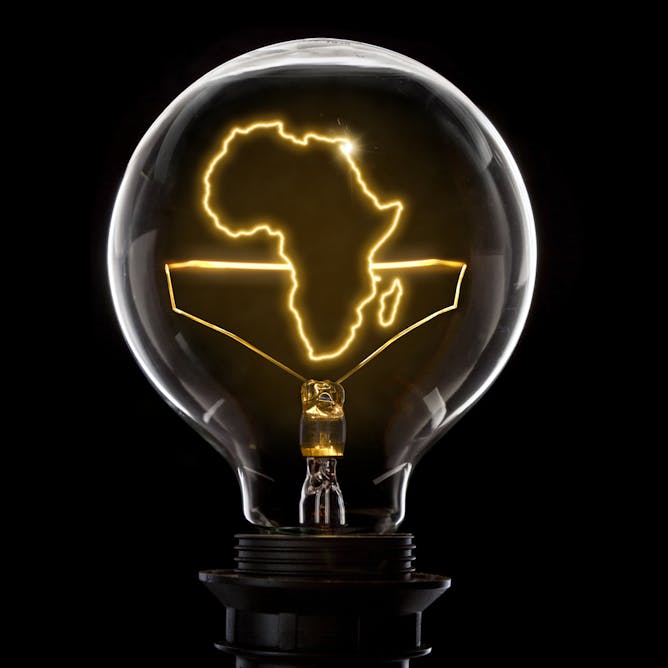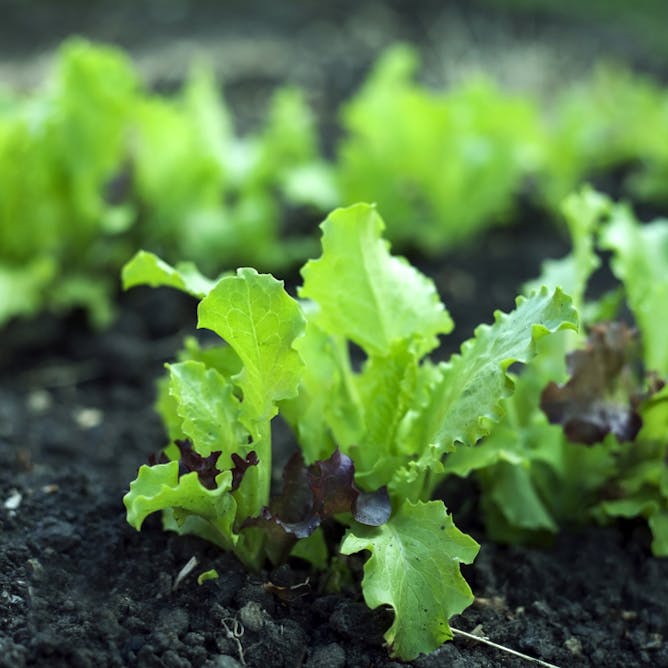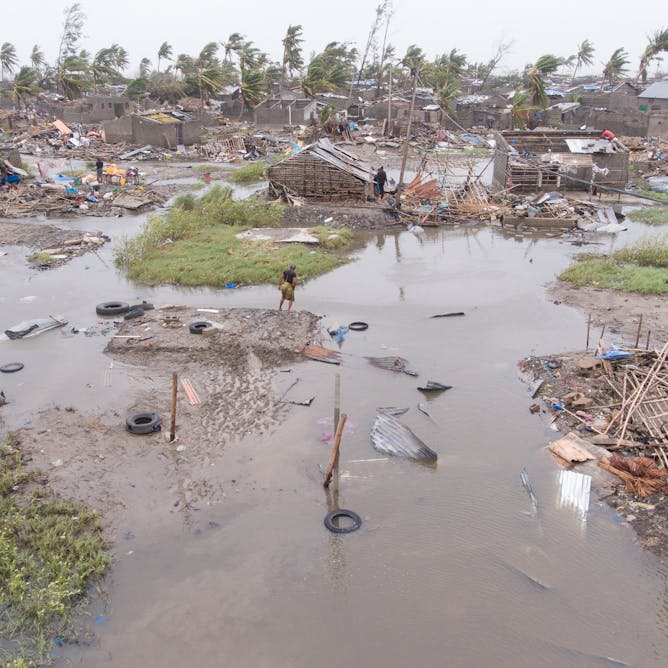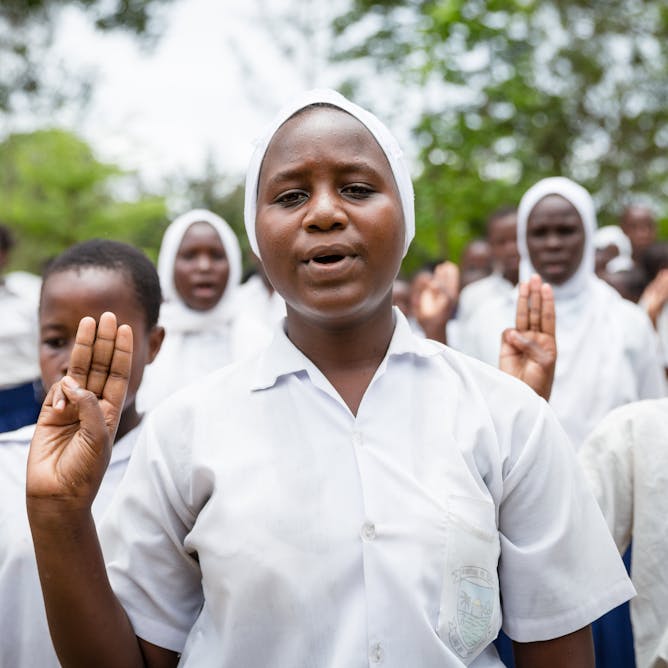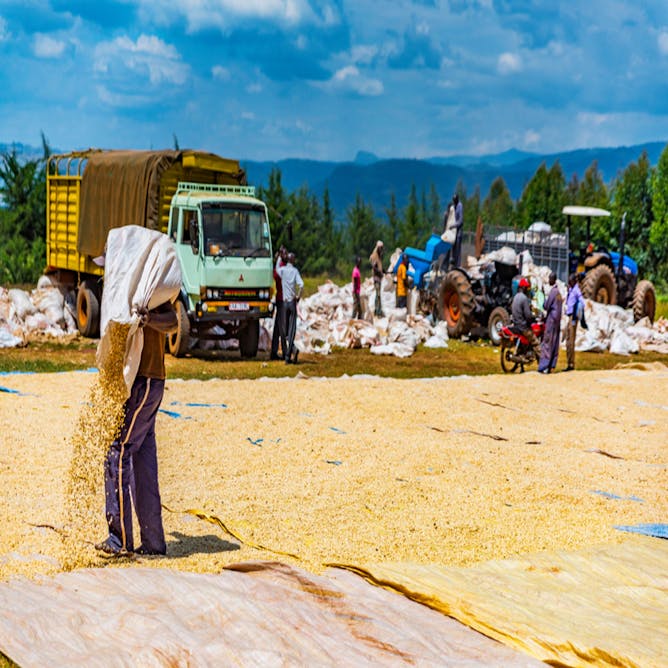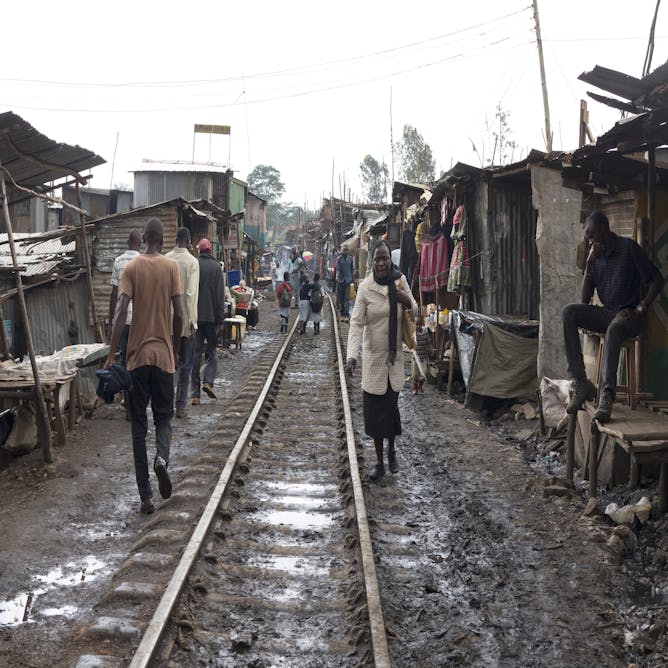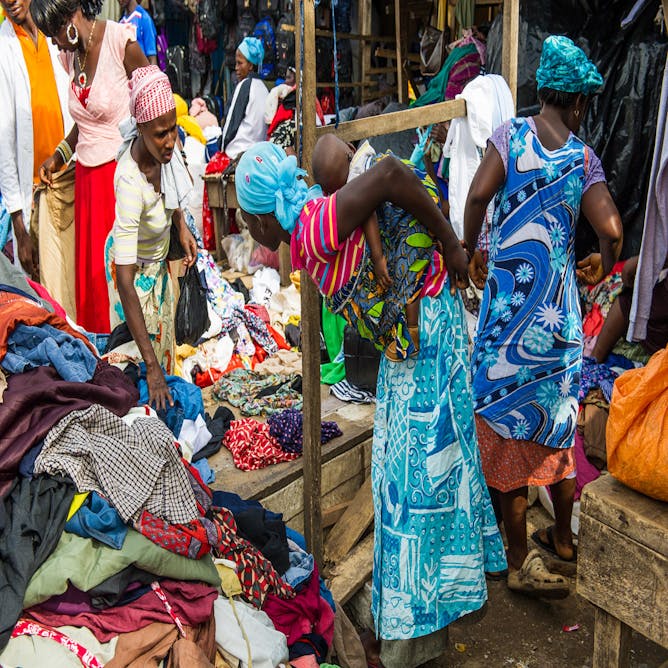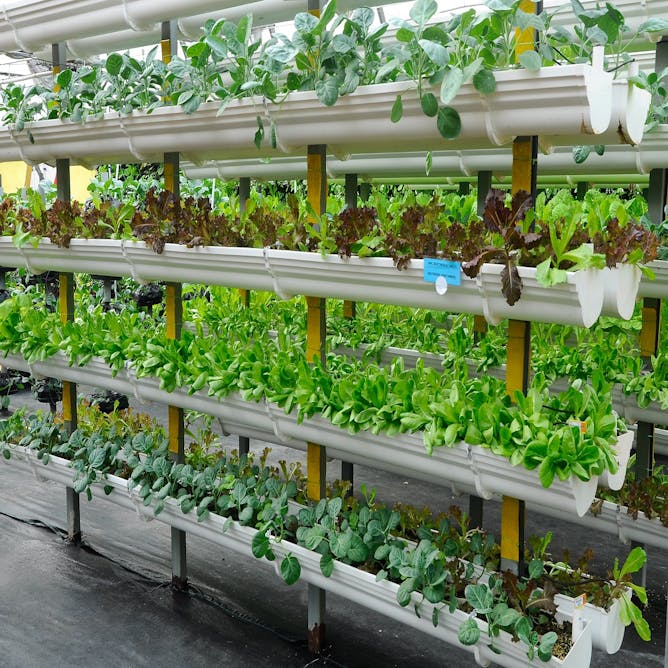
Latest Episodes
Pasha 28: What it will take to build the toilets of the future
Around 4.5 billion people don't have adequate access to sanitation. And to deal with the problem, there are a number of new technologies that try to deal with human waste in a safe and useful way. Some toilets can save water and some can produce limited amounts of electricity. But for these toilets to be useful to people who don't have access to proper sanitation, they need to be created in a way that…
1 Host: Rebecca Sindall
Pasha 27: Employed, but still poor, in South Africa
The assumption that's usually made is that if someone has a job they're not poor, or living in poverty. But this isn't always the case. Employment no longer guarantees an escape from poverty. This has increasingly become the case across the world. South Africa is no exception. Many people who have jobs remain poor because wages are too low to lift them and their families out of poverty. In the latest…
1 Host: Ozayr Patel
Pasha 26: Why South Africa needs to sort out its parliamentary budget office
Parliamentary budget offices (PBOs) can play a valuable role in democracies. They provide impartial and expert advice on public finances. They do this in a transparent manner. This can strengthen oversight of public finance decisions by parliamentarians and civil society. But South Africa's PBO is in disarray. In today's episode of Pasha, we talk to Seán Mfundza Muller, a senior lecturer in economics…
1 Host: Seán Mfundza Muller
Pasha 25: A Brazilian city offers South Africa lessons on ending hunger
Many countries in the world face a double burden of hunger and malnutrition, on the one hand, and obesity with associated non-communicable diseases (NCDs), on the other. South Africa is one of them. Poverty, inequality, urbanisation and industrialisation of the food system means that people have limited access to healthy, affordable food. The result has been a spike in NCDs. In today's episode Brittany…
1 Host: Brittany Kesselman
Pasha 24: Rwanda's female peacekeepers need better training
Peacekeepers are exposed to a great deal of trauma in their daily work -- and female peacekeepers from Rwanda say they simply aren't getting the training they need to deal with this reality. They find it especially difficult to support and communicate with women who have experienced sexual violence and trauma. In today's episode of Pasha Georgina Holmes, a Leverhulme early career research fellow from…
1 Host: Georgina Holmes
Pasha 23: Tropical cyclones are on the rise in southern Africa
Southern Africa has seen a rise in tropical cyclones recently. The most recent examples were Cyclones Kenneth and Idai that hit Mozambique and surrounds. In the latest episode of Pasha Dr Jennifer Fitchett, a senior lecturer in physical geography at the University of the Witwatersrand in South Africa, explained why this is happening. This episode also looked at naming cyclones and how they are measured…
1 Host: Jennifer Fitchett
Pasha 22: Mobile technology and backpackers in Ghana
Backpacking contributes significantly to many countries' tourism revenue, Ghana among them. But some backpackers in the West African nation fear that their mobile technology isn't safe there -- they worry that it may be targeted by hackers and other cyber criminals, or snatched by thieves. In today's episode of Pasha we spoke to Frederick Dayour, a lecturer at the University for Development Studies…
1 Host: Ozayr Patel
Pasha 21: Why multiple food systems are important
Food insecurity is a major problem in many African countries. Sadly, development organisations that set up programmes in those countries hoping to alleviate the crisis can end up doing the opposite. That's because more advanced forms of agriculture are promoted at the expense of more established local food systems like foraging and subsistence agriculture. It's these systems that poorer households…
1 Host: William G. Moseley
Pasha 20: In South Africa, unhealthy food choices are everywhere
Diseases linked to obesity are rising rapidly in South Africa. A major part of the problem is the growing available of unhealthy food options. In many neighbourhoods there are more unhealthy food outlets, like fast food places, than there are healthy food options. In this episode of Pasha, Safura Abdool Karim, a senior project manager at PRICELESS SA (Priority Cost Effective Lessons in Systems Strengthening…
1 Host: Safura Abdool Karim
Pasha 19: How seeing women in power can inspire Ethiopia's girls
Ethiopia's Prime Minister Abiy Ahmed has been making sweeping changes. One area in which he's made considerable progress is in women's representation in government. He appointed Sahle-Work Zewde as the country's first woman President and also named a cabinet with 50% female representation. These decisions could have a major impact on young Ethiopian girls -- having women in powerful political positions…
1 Host: Ozayr Patel
Pasha 18: The struggles of black women in science
Many academic disciplines in science, technology, engineering and maths tend to be dominated by men. There are a number of historical and social reasons for this, which persist today and keep women out of these disciplines. This is especially true for black women, who must also battle outdated cultural ideals that suggest they don't "belong" in science. In today's episode of Pasha, Ndoni Mcunu, a PhD…
1 Host: Ndoni Mcunu
Pasha 17: Taking a look at light pollution
Light pollution emanates from excessive and obtrusive light produced by humans at night. It mainly comes from electricity from houses, offices, streetlamps, billboards and car headlights. Evidence is growing that light pollution has negative effects on human health. In the latest episode of Pasha Bernard Coetzee, a conservation scientist from the University of the Witwatersrand, takes us through what…
1 Host: Ozayr Patel
Pasha 16: Small-scale farming and agroecology
The intensive production of livestock, poultry, fish and crops, is environmentally damaging. This is because industrial farming can affect the soil, water and climate. The answer lies in promoting less intensive farming methods, known as agroecology. In this week's episode, Rachel Wynberg the bio-economy research chair at the University of Cape Town and Laura Pereira, a researcher at the centre for…
2 Hosts: Laura Pereira and Rachel Wynberg
Pasha 15: The unhealthy aftermath of Cyclone Idai
Cyclone Idai has devastated millions of people in Malawi, Mozambique and Zimbabwe. The flood waters have receded -- but these countries' problems are not over yet. Many health issues lurk in the aftermath of a natural disaster. In today's episode Kerrigan McCarthy, head of the Outbreak Response Unit at South Africa's National Institute for Communicable Diseases, discusses these health issues and the…
1 Host: Ozayr Patel
Pasha 14: Fake news and fallacies part 3
"Fake news" means different things to different people. As far as Professor Tawana Kupe, Vice-Chancellor and Principal of the University of Pretoria, is concerned: "If it's fake, it can't be news". Calling it this, he's argued, gives the term legitimacy. But at the same time, he and others say, it's important that the problem be acknowledged. It is present in the world of academia as well. On today's…
1 Host: Ozayr Patel
Pasha 13: Fake news and fallacies part 2
Fake news is attractive to people because of its simplicity: it contains elements of truth, and that lures people into believing it. In this era where fake news and fallacies are all around us, science has a crucial role to play. Social media and digital technologies help in spreading fake news. But this doesn't mean social media should be controlled or censored by governments, Professor Tawana Kupe…
1 Host: Tawana Kupe
Pasha 12: Fake news and fallacies part 1
"Fake news" is a calculated assault on democratic freedoms. One of the ways to beat misinformation, disinformation and propaganda is through science. Evidence based journalism is crucial, too. In this episode of Pasha, Professor Tawana Kupe, Vice-Chancellor and Principal of the University of Pretoria, spoke ahead of a panel discussion presented in partnership with The Conversation Africa. Here's what…
1 Host: Tawana Kupe
Pasha 11: Sexually transmitted infections in South Africa
South Africa has had to focus heavily on the fight against HIV and AIDS given the country's high infection rates. As a result, sexually transmitted infections have often been ignored. In this episode, Tendesayi Kufa-Chakezha -- an epidemiologist and public health specialist at the country's National Institute for Communicable Diseases -- takes us through why it's so important for people to get over…
1 Host: Ozayr Patel
Pasha 10: Managing diseases in African cities
Cities are becoming more populated as the world rapidly urbanises. At the same time, the climate is changing; hot and cold weather patterns are causing various health problems, like dehydration and diseases spread by mosquitoes. Lenore Manderson, a distinguished professor in public health and medical anthropology, is today's guest on Pasha. This episode looks at how difficult it's to manage diseases…
1 Host: Lenore Manderson
Pasha 9: Teen pregnancies in Kenya
Kenyan teenagers who fall pregnant face social stigma and isolation. This, in turn, leads to a vicious cycle of mental stress, depression and suicidal thoughts. In this week's edition of Pasha, Estelle Monique Sidze, a research scientist, discusses the problem of teen pregnancies and how to deal with the challenges young women face, including the often ignored issue of mental health, particularly in…
1 Host: Estelle Monique Sidze
Pasha 8: Nigeria's struggle with Lassa fever
Nigeria made tremendous strides in tackling the Ebola outbreak a few years ago. But since then the country has been battling with diseases like Lassa fever. Our guest this week, Oyewale Tomori, a retired professor and fellow at the Nigerian Academy of Science, looks at what are the reasons for this. In our latest episode of Pasha, he discusses some solutions in dealing with a disease that's claimed…
1 Host: Ozayr Patel
Pasha 7: Why it's important to stop food wastage
The United Nation's Food and Agriculture Organisation estimates that around a third of food is wasted globally every year. In Africa, that number can be as high as 50%. This is of major concern given the continent's population increase. The problem begins the minute farmers have harvested. This is because choosing when to harvest, as well as storage, are big problems. In this week's edition of Pasha…
1 Host: Jane Ambuko
Pasha 6: Kenya's battle with poverty
Kenya has made important strides in its battle against poverty. But millions of Kenyans remain extremely poor. In a study he conducted, this week's guest -- Timothy Njagi Njeru, a research fellow at Egerton University -- looked into this issue and explored how poverty is affecting so many households in the East African nation. The study focused on how some households escape poverty -- and stay out…
1 Host: Timothy Njagi Njeru
Pasha 5: The social stigma facing Ghana's women
Ghanaian women pay a heavy social price for not having children. They face social stigma, mental distress and potential domestic abuse. These pressures can put a strain on their marriages and other relationships. In Ghana having children is regarded as affording people a higher social status because they are expected to support their parents as they grow older. In the latest edition of our podcast…
1 Host: Jasmine Fledderjohann
Pasha 4: The virtues of vertical farms
A massive challenge for Africa is feeding the 1.3 billion people who live on the continent. This will only get more and more difficult as the population grows. Providing nutritious, healthy and pesticide free food is crucial. Vertical farms is one possible way of meeting the challenges of urbanisation and the rising demand for food. The farms are built as vertically stacked layers in unlikely places…
1 Host: Esther Ndumi Ngumbi

